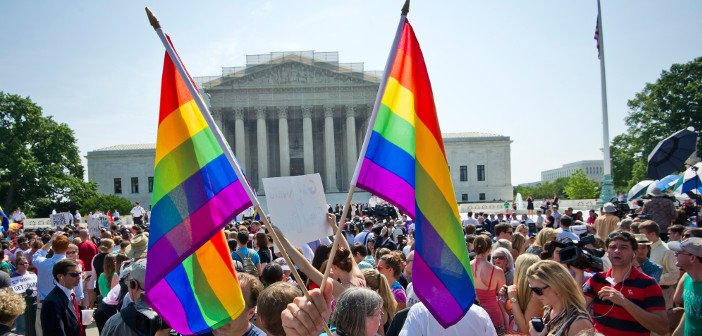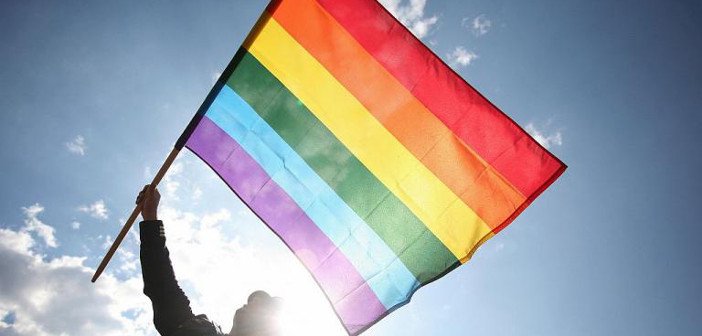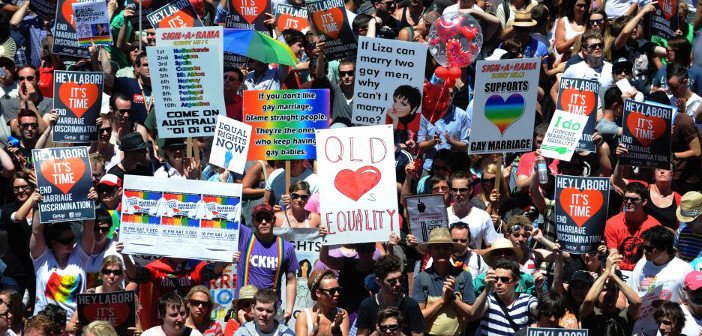Referenda and Marriage Equality are Rarely Good Bedfellows
When Ireland voted for gay marriage last year, it became the first country to do so via public ballot. It was an important moment in Irish history and in LGBTQI+ history.
But referenda and marriage equality are rarely good bedfellows. Across the world, referendums have been used to restrict gay rights or wind back equality legislation.
In the US, only three states used a referendum as a tool to legalise gay marriage. The more usual practice was to use referendums to curtail gay rights. Between 2004 and 2008, 18 states held plebiscites successfully banning gays from the institution of marriage. It was only Maine, Maryland, and Washington which, on 6 November 2012, were the first and only states to legalize same-sex marriage through popular vote.

This isn’t ancient history. Elsewhere in the world, referendums are still being used to restrict rights. Croatia held a referendum in 2013 to put a definition of marriage into the national constitution. That definition restricted marriage to being between one man and one woman. The referendum, led by an organisation called “In the name of the family” and vigorously supported by the Catholic Church, was very successful. Almost 38% of voters turned out, with 65% agreeing that marriage should be defined as a heterosexual union.[pullquote]In the US, only three states used a referendum as a tool to legalise gay marriage. The more usual practice was to use referendums to curtail gay rights. [/pullquote]
The ludicrous thing about the Croatian referendum is that it was completely unnecessary. The parliament went on to pass civil union legislation which grants gay couples all the exact same rights and responsibilities as married straight couples – except in the area of adoption. The referendum cost around $9 million to hold – not a small amount of money in a country still recovering from war, only new to the EU and with youth unemployment at 45%.
In February of 2015, an anti-gay marriage referendum was held in Slovakia. The move eventually failed because of low voter turnout. No surprises that the impetus for the referendum came from a group called “Alliance for Family”. Meanwhile, in Slovenia, the parliament passed a same sex marriage bill in March 2015. A public referendum in December the same year rejected the bill.

The problem with referendums is that they don’t really reflect the will of the people. Only people who really care about an issue will bother to turn up and vote. Most people couldn’t care less about gay marriage, because they know it doesn’t affect them. Only people who are passionately for or against will vote. And all those people in the middle, who by their silence skew the results so that anti-gay marriage measures pass, are actually saying the opposite![pullquote]The problem with referendums is that they don’t really reflect the will of the people. Most people couldn’t care less about gay marriage, because they know it doesn’t affect them.[/pullquote]
There is debate in Australia at the moment about holding a plebiscite on the issue of gay marriage. Australia could easily pass marriage equality legislation via parliament, and opinion polls suggest that the majority of Australians are in favour of allowing gay marriage. But the ruling conservative government has decided that the decision must be put to the populace. There are lots of problems with this decision, not least of which is that a plebiscite in Australia is not legally binding. So even if the people go to the polls, at a cost of up to $160 million, and vote in favour of gay marriage, the parliament is not obliged to pass this decision into law. Read that sentence again. For real.
Another valid concern is that putting the question to the public allows a space for hateful discussions in the name of balanced debate. This was seen in Ireland, with organisations such as the Iona Institute misconstruing research data to claim that same-sex parents are detrimental for children. Writing in The Guardian, David Robert Grimes put it succinctly:
The implicit homophobia underlying these messages sends an alarming signal to any astute observer that homosexuality is simply not normal and homosexuals do not have any place with children.

In Australia, a plebiscite is merely a stalling tactic. There have only been 3 plebiscites in Australia’s history, which leads to the obvious question: what is so special about this particular legislation that it should be brought to plebiscite? Australian parliamentarians have the power, under the Constitution, to listen to their constituents the same way they do for every other piece of legislation. How a plebiscite is worded can change the connotations of the question and therefore how people will answer it. Will the question restrict access to marriage, or widen it? A plebiscite is merely a political manoeuvre for politicians who lack the ovaries to just do their damn jobs.
It’s possible that after the wonderful success and jubilation of the Irish referendum, other countries will follow. Armagayddon hasn’t happened. All those people pretending to care about families, while actually caring about keeping their top position in the social hierarchy, have moved on to complain about other things. It proved that referendums can be used to expand rights, not merely restrict them. But the most peaceful and respectful way to grant equal rights to citizens is via legislation. This is a lesson that is unfortunately going to take a long time to learn.
Featured image via Aiden Crawley
